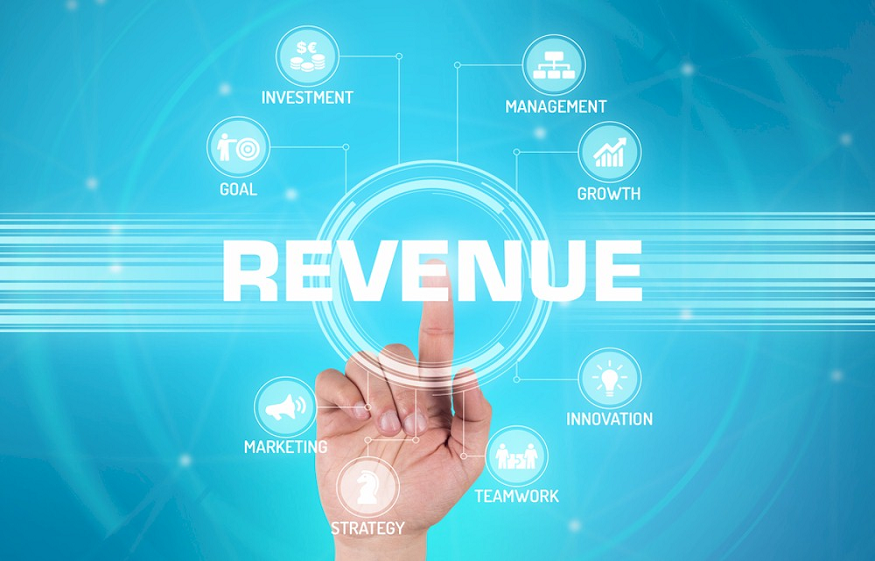Hotels constantly struggle to maintain their competitiveness and profitability in the intensely competitive environment of the hospitality sector. With the aid of cutting-edge revenue management system software, hotels are using revenue management services to navigate this dynamic industry. Hotels may optimize their revenue streams with the help of these services, which provide them access to data-driven insights, clever pricing schemes, and demand forecasting tools. Let’s look at how services for managing revenues may improve pricing tactics, demand management, and total revenue optimization to help hotels stay profitable and competitive.
Recognising Hospitality Revenue Management Services
In the hospitality sector, revenue management services cover a variety of tactics and equipment designed to boost earnings. The sophisticated Revenue Management System Software that underpins these services enables hotels to analyze market data, monitor booking trends, and predict demand precisely. The final objective is to maximize room prices, boost occupancy rates, and produce the highest revenue levels.
Dynamic Pricing Techniques to Generate the Most Revenue
Utilizing dynamic pricing techniques is one of the main ways Revenue Management Services aids hotels in remaining profitable and competitive. Hotels can establish room prices using the Revenue Management System Software based on current demand, competitive pricing, and market factors. Hotels can efficiently balance occupancy and maximize income by dynamically modifying rates so that they can collect money during times of high demand and entice price-sensitive visitors during times of low demand.
For inventory management, precise demand forecasting is essential
Accurate demand forecasting is one of the most important aspects of revenue management services. The Revenue Management System Software examines previous data and market patterns to forecast future demand effectively. With this knowledge, hotels may improve inventory management, ensuring that the ideal rooms are offered at the perfect rates to satisfy anticipated demand. By doing so, underselling or overbooking is prevented, increasing profitability.
Customized and focused marketing techniques
Additionally, services for managing revenues use specialized and focused marketing techniques. With the Revenue Management System Software’s aid, hotels may divide their clientele and target specific demographics with customized marketing campaigns. Hotels can enhance direct bookings and encourage repeat business by offering tailored offers and promotions. It reduces dependency on third-party booking platforms and boosts overall profitability.
Revenue per Available Room Yield Management
Revenue per available room optimization tactics is also included as part of their services for managing revenues. Hotels can increase RevPAR even when demand is low by using tactics like dynamic pricing, upselling, and cross-selling. To improve the guest experience and revenue, the Revenue Management System Software helps to spot chances for upselling and adding add-on services.
Monitoring Competitor Pricing and Market Positioning
Monitoring competitor pricing and market positioning has become essential for hotels to stay ahead and make educated decisions in the highly competitive landscape of the hospitality sector. Hotels can modify their pricing plans and marketing initiatives according to how competitors place themselves in the market and price their rooms.
Gaining knowledge of market trends
Hotels can learn important information about market trends and developments by keeping an eye on competition pricing and positioning. Hotels may stay proactive and modify their pricing strategy by being aware of how rivals alter their rates in reaction to shifts in demand, events, or seasonal changes. It guarantees that hotels maintain their competitiveness and take advantage of new market opportunities.
Analyzing benchmarks and competitors
Hotels can undertake detailed benchmarking and competitive analysis by monitoring competitor pricing and market positioning. Hotels can determine areas where they excel and those where they can improve by contrasting their prices, offers, and services with those of rivals. This analysis enables hotels to develop distinctive value propositions that attract customers.
Finding Value-Added Service Opportunities
Hotels can offer value-added services or facilities by observing how rivals position themselves. By spotting opportunities in the industry, hotels can launch fresh services that set them apart from competitors and draw in more visitors looking for unusual experiences.
Responding to Promotions and Offers from Competitors
Hotels can successfully respond to competition promotions and special offers using competitor price and positioning data. Hotels might modify prices or develop special deals in response to a competitor’s limited-time advertisement to stay competitive and keep their market share.
Demand monitoring and inventory allocation adjustments
Information on competitor pricing might shed light on market demand trends. Based on demand levels and rival occupancy rates, hotels can change how much inventory they have available. Hotels can increase their potential revenue by optimizing room availability and pricing based on market demand.
Marketing and advertising strategies that can be improved
Hotels may improve their marketing and advertising efforts by analyzing how rivals position their brands and sell themselves. Hotels can target their messaging and marketing initiatives to showcase their distinctive selling qualities and differentiate themselves from competitors.
Developing New Revenue Opportunities
Additionally, keeping an eye on competition pricing and market positioning might help hotels find new sources of income. Hotels can effectively target these opportunities by adjusting their pricing and marketing tactics by recognizing market inefficiencies or underserved client niches. This proactive approach assists hotels in growing their clientele and revenue.
Responding to Market Dynamics and Trends
Occasions, seasons, and outside variables like the economy impact the hotel industry. Hotels can respond to these market dynamics and shifts using services for managing revenues. Hotels may swiftly modify their pricing and marketing plans with the Revenue Management System Software in order to stay relevant and competitive in a shifting market.
Conclusion
Finally, hotels need to utilize Revenue Management Services supported by cutting-edge Revenue Management System Software to remain profitable and competitive in the hectic hospitality industry. Using dynamic pricing strategies, precise demand forecasts, and tailored marketing campaigns, hotels may increase occupancy rates and their revenue streams. Utilizing yield management techniques enhances RevPAR by ensuring that hotels make the most of their available room inventory.
Additionally, by monitoring competitor prices and responding to market dynamics, hotels may maintain a competitive edge and alter their strategies as needed. In order to make data-driven decisions, stop revenue leakage, and boost profitability, hotels can adopt revenue management systems.
By implementing Revenue Management Services and cutting-edge Revenue Management System Software, hotels can successfully navigate the difficulties faced by the hospitality industry and achieve long-term success. Hotels can do this in a continuously evolving market to retain their profitability and competitiveness.




